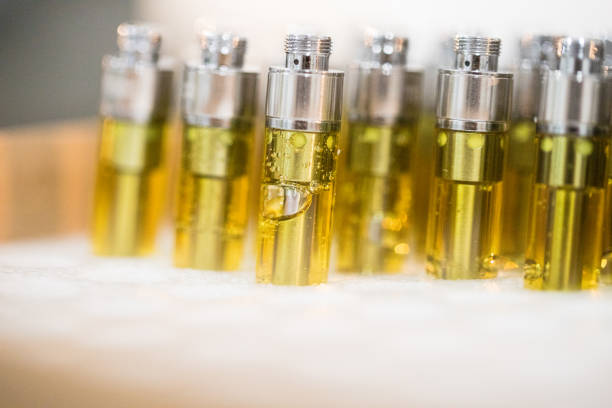Delta-8 Tetrahydrocannabinol, often simply referred to as Delta-8 THC, is a compound that’s been gaining attention in the wellness and health spheres. But what exactly is it, and how does it differ from the more well-known Delta-9 THC? Let’s dive into the world of Delta-8 THC and explore five key things you should know about this intriguing compound.
1. What is Delta-8 THC?
Understanding the Basics
Delta-8 THC is a naturally occurring compound found in the cannabis plant. It’s one of the many cannabinoids that the plant produces, but it’s not as well-known or as abundant as its close relative, Delta-9 THC. Delta-8 THC is chemically similar to Delta-9 THC, but it has some unique properties that set it apart.
The Difference from Delta-9 THC
While Delta-8 and Delta-9 THC may sound similar, they are different in a few key ways. The main difference lies in the location of a specific bond in the chemical structure. Delta-8 THC has this bond on the 8th carbon chain, while Delta-9 THC has it on the 9th. This small difference can have a significant impact on how the body interacts with these compounds.
2. Effects of Delta-8 THC
Physical and Mental Effects
Delta-8 THC is known for producing a milder psychoactive effect compared to Delta-9 THC. Users often report feeling a sense of calm and relaxation after consuming Delta-8 THC. It’s also been noted for its potential to stimulate appetite, just like Delta-9 THC.
Research on Delta-8 THC
While there is a growing interest in Delta-8 THC, it’s important to note that research on this compound is still in its early stages. Most of the studies conducted so far have been on animals, and more research is needed to fully understand the effects and potential benefits of Delta-8 THC on humans.
3. Legal Status of Delta-8 THC
Federal Law
The legal status of Delta-8 THC can be a bit tricky to navigate. In the United States, the legality of Delta-8 THC is tied to the source of the compound. If it’s derived from hemp (a type of cannabis plant with low THC content), it’s considered legal under federal law. However, if it’s derived from marijuana (a type of cannabis plant with high THC content), it’s considered illegal.
State Laws
While Delta-8 THC may be legal under federal law if derived from hemp, it’s important to note that state laws can vary. Some states have specific laws regarding Delta-8 THC, so it’s always a good idea to check the laws in your area before purchasing or using products containing this compound.
4. How to Use Delta-8 THC
Forms of Delta-8 THC
Delta-8 THC is available in various forms, including oils, tinctures, edibles, and vape cartridges. The method of consumption can affect how quickly you feel the effects and how long they last. For example, edibles may take longer to kick in but can provide a longer-lasting effect compared to vaping.
Start Low and Go Slow
If you’re new to Delta-8 THC, it’s generally recommended to start with a low dose and gradually increase it as needed. This allows you to gauge your body’s response and find a dosage that works best for you. Always remember to use responsibly and in accordance with local laws and regulations.
5. Potential Benefits of Delta-8 THC
Appetite Stimulation
One of the potential benefits of Delta-8 THC that’s often mentioned is its ability to stimulate appetite. This could be beneficial for individuals who struggle with appetite due to certain health conditions or treatments.
Anxiety and Stress Relief
Another potential benefit of Delta-8 THC is its calming effects, which some users find helpful in managing stress and anxiety. However, it’s important to note that everyone’s experience with Delta-8 THC can vary, and what works for one person may not work for another.
In conclusion, Delta-8 THC is a fascinating compound with a unique set of properties. As research continues to evolve, we may discover even more about this lesser-known cannabinoid and its potential applications. Always remember to use responsibly and in accordance with local laws and regulations.


